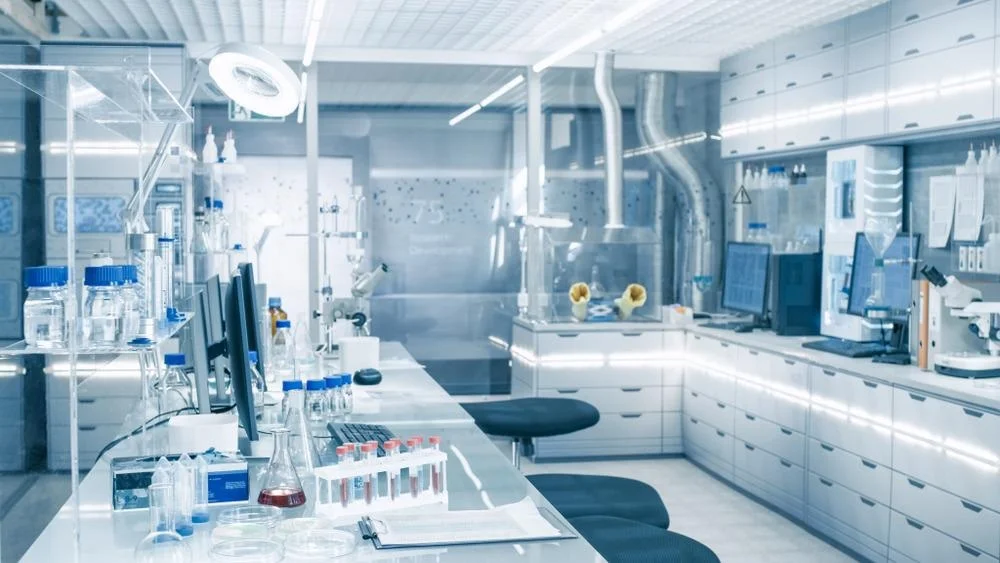Biodegradable Plastic Organic Residue Testing
Biodegradable plastics represent a significant advancement in sustainable materials. Their design allows them to decompose into natural elements under certain environmental conditions, reducing their ecological footprint compared to traditional petroleum-based plastics. However, ensuring that these plastics meet biodegradability standards is critical for both environmental and regulatory compliance.
Biodegradable plastic organic residue testing is a specialized process that quantifies the remaining organic residues in degraded bioplastics following exposure to specific conditions such as soil or compost. This testing helps verify whether a material truly degrades into non-toxic components within environmentally friendly timelines.
The need for this service arises primarily from regulatory requirements and consumer expectations regarding sustainability. Regulatory bodies like the European Union (EU) and the United States Environmental Protection Agency (EPA) have established criteria that biodegradable plastics must meet to be labeled as such. These include decomposition rates under specific conditions, the absence of harmful pollutants, and the ability to support soil health.
Our laboratory employs state-of-the-art facilities and methodologies tailored specifically for this type of testing. We use standardized protocols based on international standards such as ISO 17589-2:2016 and ASTM D5511, which provide guidelines for the biodegradation of plastics in natural environments.
The process begins with careful selection of specimens. Specimens are chosen to represent typical commercial products made from the plastic being tested. They undergo rigorous pretreatment steps designed to simulate real-world conditions they might encounter during use or disposal. This includes exposure to sunlight, moisture, and temperature variations.
Following treatment, samples are subjected to biodegradation testing in controlled laboratory environments mimicking natural soil or compost conditions. During this phase, we monitor changes in the sample composition over time using advanced analytical techniques including Fourier Transform Infrared Spectroscopy (FTIR) and Gas Chromatography-Mass Spectrometry (GC-MS).
Once degradation is complete, residual organic content is measured against set thresholds established by relevant standards. Acceptance criteria vary depending on the type of biodegradable plastic but generally ensure that less than 10% mass remains unchanged after six months under standard conditions.
This comprehensive approach ensures accurate assessment of a material’s true biodegradability, providing reliable data for compliance reports and marketing claims. It also supports ongoing R&D efforts aimed at improving existing materials or developing new ones with even better environmental performance.
Scope and Methodology
| Test Specimens | Conditions Simulated | Measurement Techniques |
|---|---|---|
| Biodegradable plastic samples representing commercial products. | Sunlight, moisture, temperature variations, soil, compost conditions. | FTIR, GC-MS for monitoring changes in sample composition. |
| Residual organic content measurement post-degradation. | Acceptance criteria ensuring less than 10% mass remains unchanged after six months under standard conditions. | Standardized protocols based on ISO 17589-2:2016 and ASTM D5511. |
The methodology ensures accurate assessment of a material’s true biodegradability, providing reliable data for compliance reports and marketing claims. It also supports ongoing R&D efforts aimed at improving existing materials or developing new ones with even better environmental performance.
Industry Applications
| Industry Sector | Potential Benefits of Testing |
|---|---|
| Sustainability-conscious manufacturers | Demonstrating compliance with regulatory standards and enhancing brand reputation. |
| R&D departments focusing on green technologies | Evaluating new materials or formulations for improved biodegradability. |
| Environmental organizations advocating sustainable practices | Providing credible evidence supporting the environmental benefits of specific materials. |
| Regulatory bodies ensuring product safety and environmental friendliness | Serving as a reliable source for data used in certification processes. |
The testing serves multiple purposes across various sectors. For sustainability-conscious manufacturers, it provides proof that their products meet stringent biodegradability standards, thereby enhancing brand reputation among environmentally aware consumers. In R&D environments, this service aids in evaluating new materials or formulations for enhanced environmental performance. Environmental organizations benefit from having credible evidence to support advocacy efforts. Regulatory bodies rely on accurate data generated by our testing methods during certification processes.
Quality and Reliability Assurance
We adhere strictly to international standards such as ISO 17589-2:2016 and ASTM D5511, ensuring that all tests conducted are consistent with recognized best practices. Our quality assurance team conducts regular audits of laboratory procedures to maintain high standards throughout the testing process.
Our commitment extends beyond mere adherence to standards; we continuously invest in cutting-edge technology and training for our staff to stay at the forefront of biodegradability research. This proactive approach guarantees that clients receive up-to-date, reliable information about their products’ environmental impact.





